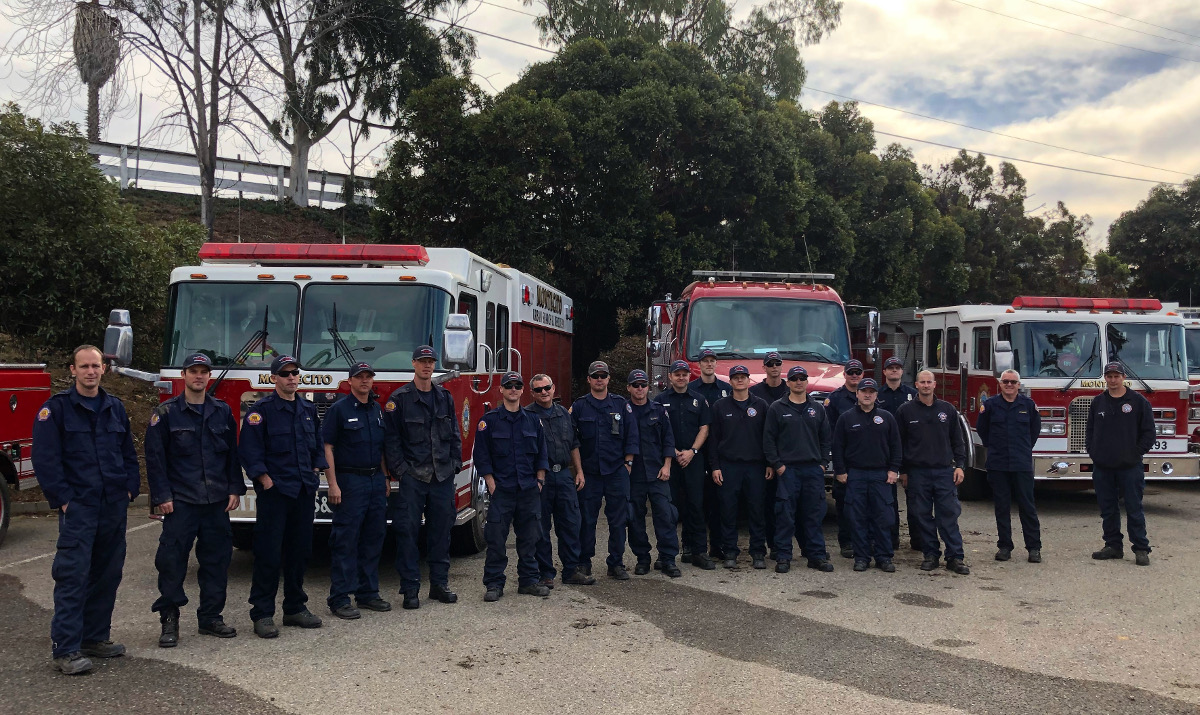Healing a Community
An Example from Montecito Fire on Dealing with Tragedy

For first responders, the moment an incident like the flood goes from “rescue” to “recovery” is when they allow themselves, officially, to begin the process of psychologically and emotionally dealing with what just happened in our community. Until then, the men and women in fire, law enforcement, and many public agencies have put themselves last — and you first. Rescue is no time for processing emotions about what is happening. It is a time of action — completely and relentlessly focused on helping others.
For the community, there’s no official dividing line like this. Emotions have run high for most of us since the flames sparked in Santa Paula. This little story about how Montecito Fire is dealing with tragedy could help us all take the next steps.
January 16 was when the Critical Incident Stress Debriefing was triggered by the “recovery” transition for Montecito Fire Protection District. When you see these women and men out there, know that all the trauma, all the deaths, injuries, and saves, just landed in their hearts. This experience can be overwhelming. This is the first time they are allowed to just be humans again, to have feelings and to acknowledge that they might have a lot of pain in their hearts. Some do not have a home to go back to, and they are all worrying about their families and friends like the rest of us.
Here is a small example of how firefighters understand and support each other during this transition from crisis back into regular life: When Montecito Fire was dispatched to the stress debriefing, another fire agency had to staff our stations to cover any calls and to protect the public. Our fire stations are staffed 24/7/365 no matter what, and firefighters are trained to watch each other’s backs. A strike team from SoCal led by Laguna Beach Division Chief Tom Christopher came in to do that job.
While they worked in our station, the team and Chief Christopher personally washed all of our filthy, muck-covered engines, trucks, and cars and then cleaned up the shop so that when our crew came back, the equipment looked brand-new and our shop was clean. This may seem like a small gesture, but given the context, it was a show of tremendous support and solidarity. Our women and men were coming fresh out of their stress debriefing and were feeling raw. They were also being given leave from the flood zone for the first time since they were all called in two days before the flood.
Firefighters don’t ever want to leave a mess in their station. Hours of cleaning muck off of engines right after being told that it’s time to begin the process of dealing with the memories, trauma, and feelings about the two biggest disasters in our community’s history — that is a tough task.
Tom Christopher’s team knew this, so they cleaned our stuff before our people got back to the station. By doing that particular chore for our people, at that particular moment, they sent a message loud and clear:
“We get it, and we feel you — brothers and sisters.”
This is a simple lesson for all of us. We know that we can’t just make this monstrous trauma right for everyone in this time of grief and hardship, but we can all make thoughtful gestures of kindness to the people who are hurting around us. Thoughtfulness is an important part of this approach to kindness. To get it right, you have to empathize and put yourself in the shoes of the person you are trying to help, because some acts of kindness can be overwhelming when people have experienced trauma. In fact, sometimes it is actually not grand gestures that are called for in moments like this. Consistent small kindnesses we can offer each other can be a great comfort to both those giving and those receiving them.
The SoCal Strike Team got it just right. I think we can all learn from their example: We can watch each other’s backs and engage in thoughtful acts of kindness to begin the process of healing this wounded community.
The Strike Team members were from the cities of Brea, Engine 322 (Captain Williams, Engineer Jones, Firefighters Pitts and Basaites); Anaheim, engines 309 (Capt. Mosman, Eng. Verdica, FFs Ingram and Vaughn), 301 (Capt. Colonelli, Eng. Neuhausen, FFs Collins and Allred), and 310 (Capt. Wood, Eng. Snow, FFs Keith and Ali); Laguna Beach, Engine 302 (Capt. Lether, Eng. Kalscheuer, FF Lazicki); and Division Chief Tom Christopher, Laguna Beach Battalion 3.
John Abraham Powell is a member of the Montecito Fire Protection District Board of Directors and a lifelong resident of Montecito.



